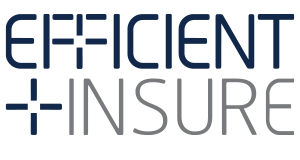HOW TO PROTECT YOUR OFFICE IN A HYBRID WORKING ENVIRONMENT
~ Courtesy Santam
As hybrid working environments born of the impact of Covid-19 take shape across many businesses, they present some unintended consequences, especially where one’s insurance is concerned. Every business owner needs to be a risk manager – prevention is always better than cure.
"The reality is offices aren’t at full capacity, and this has an impact on the type and frequency of risk management activities needed to protect staff’s well-being while in the office,” says Philippa Wild, Head of Commercial Underwriting at Santam.
HERE ARE SOME OF THE POTENTIAL RISK MANAGEMENT CONSIDERATIONS RESULTING FROM PARTIALLY OCCUPIED OFFICE SPACES:
Threats of fire
Fires are considered the number one risk to businesses. One large fire could tragically be the catalyst to close a struggling business, permanently. A lapse in fire-safety maintenance could increase the risk of a fire. For example, if a generator isn’t maintained, the automatic sprinkler system could fail, which means flames could spread quickly. This becomes even more important as the potential for early detection by employees is reduced, as offices are not fully occupied at all times.
Poor maintenance and adherence to policy conditions
There are so many challenges for business owners right now, including stressed staff and stretched cash flow. Unfortunately, maintenance and security costs remain and must be met. Some policies contain conditions that certain equipment has to be serviced regularly, or alarms systems be tested, for example. If this doesn’t happen, a claim may be affected should an incident occur.
A changing risk environment
Not only does one need to evaluate the impact of new and emerging risks, like cyber, but one also needs to consider how your own business’s risk profile has changed due to employees working from home (with company assets) and the extent to which your premises are now partially occupied. Intermediaries play a vital role in advising clients on new emerging risks and can also assist with reviewing policies to align with changing circumstances.
Business processes and reliance on business partners
Risk management needs to include consideration of reliance on business partners and supply chains. If their risk environment is changing, are they adequately protected, and risk managed? Business owners should have contingency plans in place, which they can discuss with their intermediaries and purchase insurance where necessary.
Ways to mitigate risk when an office is partially occupied:
The pandemic has increased awareness of the need for business owners to review their policies more frequently and keep their intermediary abreast of any changes in circumstances. A large part of any business owner’s risk management function is to disclose all pertinent changes to his/her intermediary. When he/she does this, it opens the door for the intermediary to notify the insurer accordingly and a situation where there is a cover shortfall is thus avoided.
“While most businesses tend to renew and review their policies every 12 months, the pace at which things have changed in the past 24 months has made it clear that a more regular review of policies is paramount. Your intermediary is there to assist you through the process,” says Wild.
At De Wet De Villiers Brokers we strive to deliver excellent short-term insurance solutions coupled with our promise to always offer old-fashioned customer service. Our clients know that we are only a call away. So, don’t hesitate to contact us today to experience the full De Wet De Villiers Brokers treatment.
If you have any questions relating to this matter, please get in touch with us at info@dwdv.insure or call us on 014 592-1077.


